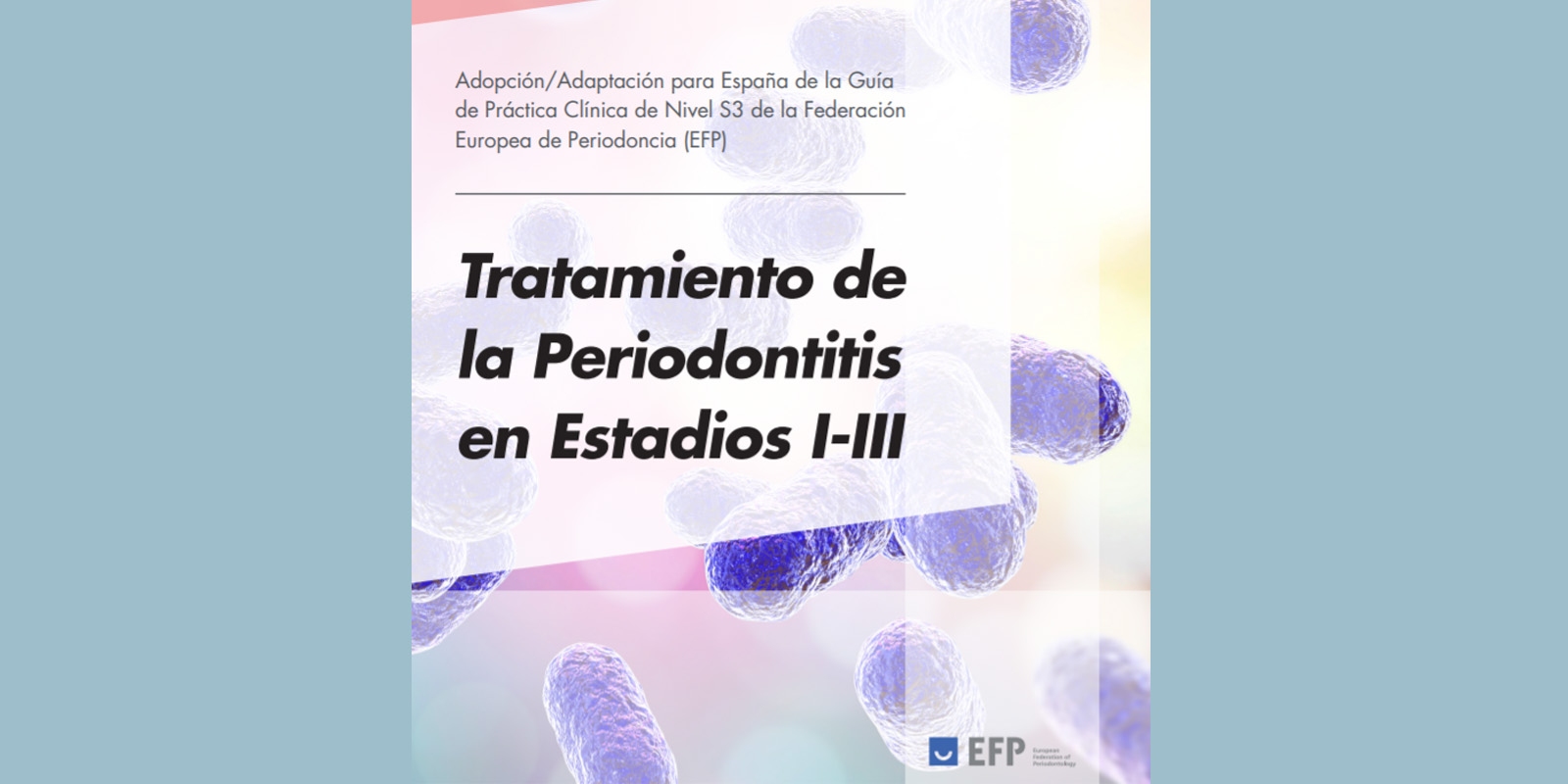DENTAID EXPERTISE
News for dentistry professionals
THE DENTAL CLINIC, KEY TO FIGHTING SMOKING
16 May 2019

The Working Group of the Spanish Society of Periodontology and Osseointegration (SEPA) and the National Committee for Smoking Prevention (CNPT) have published a report on “Smoking cessation and oral health” highlighting the important role oral health professionals can play in the prevention of smoking.
The smoking habit has many negative effects in the oral cavity. From a qualitative standpoint, its relationship with oral cancer is the most serious adverse effect to be taken into account, as the five-year relative survival rate for oral cancer is around 50%.
However, quantitatively, its importance seems to centre more on periodontitis since the disease affects a significant percentage of the population. In addition, given the high prevalence of peri-implant issues, the relationship between tobacco use and dental implant failure has in recent years become increasingly relevant.
A NECESSARY REPORT, A TEAM EFFORT
In order to shed light on these aspects, update evidence and agree on recommendations, the Working Group of the Spanish Society of Periodontology and Osseointegration (SEPA) and the National Committee for Smoking Prevention (CNPT) have published a joint report on “Smoking cessation and oral health,” which highlights the important role that oral health professionals can play in the prevention of smoking, as well as in the establishment of measures for breaking the habit and for imparting advice for smokers at the dental clinic.
The Working Group “represents an innovative and much-needed initiative,” says Dr Regina Izquierdo, a periodontist and a member of SEPA’s Board of Directors; in her opinion, “it is another example of scientific and institutional cooperation that will allow us to establish joint strategies with the objective of stimulating and promoting smoking cessation at the dental clinic, as well as including smoking within the health promotion programmes included in the Alliance for Periodontal and General Health led by the SEPA Foundation.”
NEGATIVE IMPACT ON ORAL HEALTH
According to the report, tobacco has a negative effect on oral health and constitutes a risk factor for the occurrence of oral cancer, various mucosal lesions, and periodontal and peri-implant diseases. Among other effects, smoking favours the development and progression of periodontitis, limiting the response to periodontal treatment, and has serious repercussions in implant therapy. This can lead, among other consequences, to the loss of teeth, a poorer quality of life and a worsening of overall health due to the systemic implications of periodontitis.
“Smoking not only increases the risk of developing periodontitis, but also significantly affects the response to both surgical and non-surgical periodontal therapy,” says Dr Regina Dalmau, Chair of the CNPT.
Via several mechanisms, tobacco promotes a pro-inflammatory state that underlies periodontal disease, alters natural barriers against infection and directly damages oral epithelial cells. Ultimately, as doctors Regina Dalmau and Regina Izquierdo agree, “oral health is clearly impaired by smoking.” There is a positive message however, which is that “many oral problems are avoidable and can be remedied if smoking cessation is ensured,” claim these experts.
Smoking has many negative effects on the oral cavity. From the qualitative standpoint, "its relationship with oral cancer is obviously the most serious adverse effect to be taken into account, as well as its relationship with other potentially malignant lesions of the oral mucosa,” says periodontist Regina Izquierdo. But, quantitatively, its importance is due to periodontitis, given that this disease affects a large percentage of the adult population—it is estimated that 8 out of 10 adults over the age of 35 in Spain have some form of periodontal disease.
Smoking contributes to the development of the most severe cases of periodontitis. In fact, it is an independent risk factor for the onset of periodontal disease, with smokers having between 2½ and 6 times greater risk clinical attachment loss than non-smokers. In addition, comparative studies on periodontal patient smokers and non-smokers conclude that smokers have a greater risk of disease progression and a greater incidence on tooth loss, poorer response to periodontal treatment, and inferior tissue healing, as well as a higher implant treatment failure rate, as well as an increased risk of developing infections around the implants—i.e. periimplantitis.
CHANGING HABITS AND JOINING FORCES
“This report is a wake-up call to all health professionals about the responsibility we share in the prevention and treatment of smoking,” says Dr Regina Dalmau, who emphasises “great benefit can be obtained by integrating oral health professionals at each of their different levels in the prevention and treatment of smoking.” When given by these professionals, “brief advice in the context of periodontal health problems can be even more effective,” says the Chair of the CNPT.
“I think this is a very necessary initiative,” says Francisco Rodríguez Lozano. Until now in Europe, and even in Spain, all attempts by the administrations and professional institutions at involving dentists in the fight against smoking had focused on its obvious relationship with oral cancer.
However, as the Chair of the European Network for Smoking and Tobacco Prevention highlights “stress is now being placed on its close relationship with periodontal disease. The fact that the initiative has arisen from a scientific society like SEPA is new, and it can help strengthen those previous attempts. In fact, it is an innovative endeavour since it is the first time anything like this has been done in Europe.”
THE IMPORTANT ROLE OF DENTISTS
The SEPA-CNPT Working Group emphasises that, given that smoking is a modifiable risk factor, dentists play an important role in the prevention of the harmful effects of tobacco. Introducing smoking cessation techniques in the dental practice should therefore be part of the treatment they apply.
Dentistry professionals in general develop a relationship of loyalty and trust with their patients that makes them a reference in healthcare. “The advice from a dentist has, without doubt, a very favourable impact on the motivation of patients when it comes to modifying their lifestyles,” says the head of the CNPT; but not only that, Dr Dalmau adds, “if that advice is accompanied by a positive message about the expected benefits of smoking cessation on oral and dental health, its effectiveness will be even greater.”
There is scientific evidence that advice and counselling have an exposure-response effect on smoking cessation, at least doubling the probability of success compared to those cases where an attempt is made without professional help.
“We can educate on smoking cessation at the dental clinic and implement simple and effective intervention strategies,” says Dr Regina Izquierdo, although, “it is important to emphasise that the entire dentistry team—dentists, hygienists, assistants and receptionists—must be involved in this task.”
SEPA insists that all components of the oral healthcare team must be aware of the relationship between smoking and oral pathology and must convey and reinforce recommendations on tobacco and be involved in smoking cessation programmes.
“Many professionals have not been involved so far due to the lack of preparation or adequate training, but with this exhaustive review made in the report, we are condensing all our knowledge to transmit this learning and there is no longer any excuse to say that we do not know how to do it and how to apply it in the clinic,” summarises doctor Bettina Alonso Álvarez of the Department of Dental Clinical Specialities of the School of Dentistry at the Complutense University of Madrid.
She considers that “the time has come to accept giving up smoking as part of the dental treatment plan, and even more since we know than quitting is key to the prevention and control of periodontal and peri-implant diseases.”
RELATED ARTICLES

17 Feb 2022
EuroPerio Series: professional discussions and scientific exchange
To keep the global perio community up to date with the latest research findings as well as give a taster of what is to come at EuroPerio10, the…

21 Jan 2022
Xerostomia in COVID-19 positive patients: clinical considerations
Severe Acute Respiratory Syndrome Coronavirus 2 (SARS-CoV-2) the cause of the pandemic known as COVID-19, affects different organs and systems (lungs,…

20 Jan 2022
A guide adapted to Spain to optimise the approach to periodontitis
There are currently numerous clinical practice guidelines to direct the treatment of many systemic diseases (such as diabetes, depression,…
Sign up for the DENTAID Expertise newsletter
Sign up for the newsletter